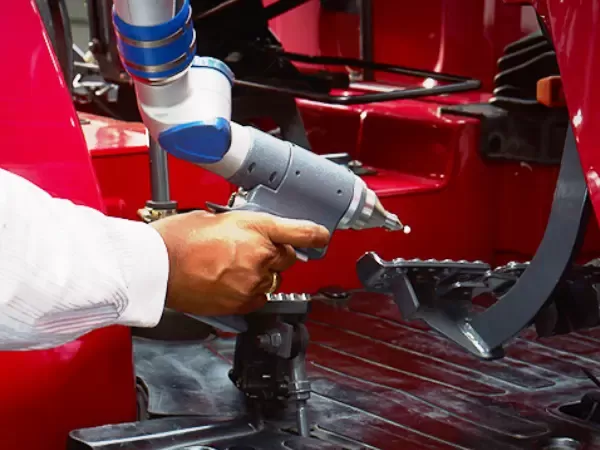
Mahindra Tractors
Rahe tough hardum,
aapke saath har kadam
Overview
For over 4 decades, Mahindra has been India’s undisputed No.1 tractor brand and the world’s largest tractor manufacturer by volumes. Part of the $19.4 Billion Mahindra Group, Mahindra Tractors is an integral part of the Farm Division which is the flagship unit of Mahindra’s Farm Equipment Sector (FES).
Mahindra Tractors -
the only tractor brand to be bestowed with


State-of-the art R&D
Our advanced R&D facilities help provide cutting-edge and innovative technology solutions to farmers across the globe.

World-class manufacturing
With robust manufacturing facilities across 8 countries around the globe, we raise the bar on excellence in quantity and quality every year.

Unparalleled quality
At the forefront of Mahindra is it's dedication to quality. We are the world’s first and only tractor manufacturer to win the prestigious Japan Quality Medal and Deming Application Prize
OUR LEADERSHIP








